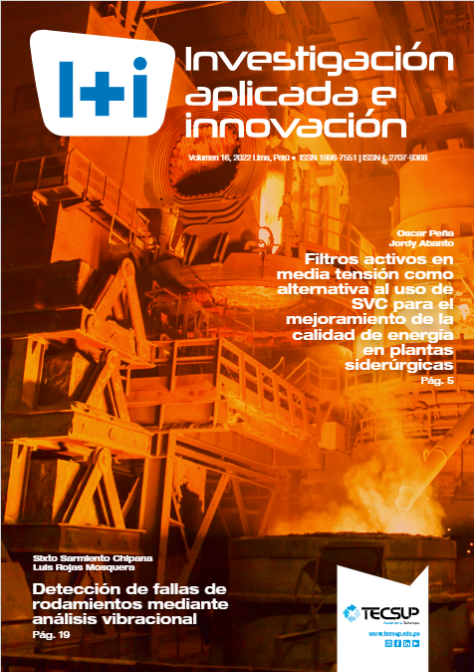Effects of Gamification on Problem-Solving and Analytical Skills
DOI:
https://doi.org/10.71701/7626dw67Keywords:
Gamification, analytical problem solving, skill, educational strategy, institute of technologyAbstract
Technology has changed not only the way we communicate and relate, but how we learn. Nowadays new teaching and learning strategies involve the use of digital tools through topic- related games. This experimental research of quantitative method aims at identifying the effect of using a game-based program on the development of problem-solving skills in an institute of technology based in Lima city, Peru. The data come from a questionnaire-type instrument applied to 72 third-cycle students of different majors, which were processed under non-parametric tests and hypothesis contrast according to the Wilcoxon Test. It turns out that gamification has a positive impact when solving problems analytically in its three dimensions: problem finding with an 83.7% post-test level of achievement, creation of alternative solutions with an 83.9% post-test level of achievement, and evaluation of solutions with an 81.6% post-test level of achievement. The Wilcoxon Test proved there is a significant difference between the pre-test and post-test results, going for the latter.
Downloads
References
Inacal (2017). ¡Impresionante! Conoce cuántas empresas en el Perú producen con calidad. RPP. [Artículo de periódico web]. https://rpp.pe/seamos-peruanos-de-calidad/impresionante-conoce-cuantas-empresas-en-el-peru-producen-con-calidad-noticia-1091508
Asociación Española para la Calidad (2007). 8D El método eficaz para la mejora continua. Editorial AEC.
Doyle, A. (2018). Problem-Solving Examples and Skills List [Artículo web]. https://www.thebalancecareers.com/problem-solving-skills-with-examples-2063764
Naciones Unidas (2017). Informe World Population Ageing. USA: Departamento de Economía y Asuntos Sociales. http://www.un.org/en/development/desa/population/theme/ageing/WPA2017.shtml
Villanueva, R., y Fowks, C. (2017). ¿En qué se diferencian los Millennials del Perú?. Datum Internacional. http://www.datum.com.pe/new_web_files/files/pdf/En%20qu%c3%a9%20se%20diferencian%20los%20millennials%20del%20Per%c3%ba%20v2.pdf
Moreno, A., Trujillo, J., y Aznar, I. (2021). Metodologías activas para la enseñanza universitaria. Editorial GRAÓ.
Teixes, F. (2015). Gamificación. Motivar jugando. Editorial UOC.
Seijo, M. (2017). Gamificación y el aprendizaje lúdico en el siglo 21. [Artículo web]. Forward Learning. https://forwardteacher.com/2017/09/gamificacion-aprendizaje-ludico-siglo-21/
Rodríguez, F., y Santiago, R. (ed.) (2015). Gamificación: Cómo motivar a tu alumnado y mejorar el clima en el aula. Editorial Océano.
Macías, A. (2017), La Gamificación como estrategia para el desarrollo de la competencia matemática: plantear y resolver problemas [Tesis de maestría, Universidad de Casa Grande, Ecuador]. http://dspace.casagrande.edu.ec:8080/handle/ucasagrande/1171
Beltrán, J. (2017) E-learning y gamificación como apoyo al aprendizaje de programación [Tesis doctoral, Universidad de Extremadura, España]. http://dehesa.unex.es/handle/10662/6429
Pérez-López, R. y Delgado-Fernández, E. (2016). Mejora de hábitos de vida saludables en alumnos universitarios mediante una propuesta de gamificación [Tesis de maestría, Universidad de Granada, España]. http://scielo.isciii.es/scielo.php?script=sci_arttext&pid=S0212-16112017000400026&lang=pt
Zapata, A. (2015). Ciclo de la calidad PHVA. Universidad Nacional de Colombia.
Whetten, D. y Cameron K. (ed.) (2016). Desarrollo de Habilidades Directivas (9.a ed.). Pearson.
Hernández, R., Fernández, C., y Baptista, P. (ed.) (2017). Metodología de la Investigación. McGraw- Hill.
Mendieta, J. D. (2016). Gamification: Strategic tool in organizational learning [Tesis de maestría, Universidad Nacional de Colombia Sede Medellín, Colombia]. https://repositorio.unal.edu.co/handle/unal/55850
Downloads
Published
Issue
Section
License

This work is licensed under a Creative Commons Attribution-NonCommercial 4.0 International License.


